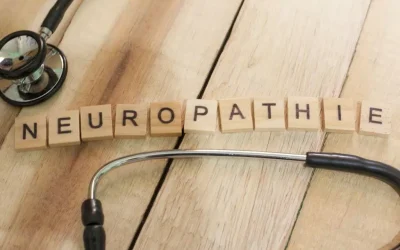Content
To drink alcohol or distilled spirits affects your blood glucose level when you have diabetes. Severe health consequences can happen because alcohol impairs both physically and mentally. If you believe your alcohol consumption is not problematic, slowly sipping your drink will help your body process the alcohol better and will help to prevent blood sugar levels from dropping too low.
And in an emergency glucagon may not work so tell people to call 911 (your liver is busy filtering alcohol so the glucagon may not work). If alcohol is used, wine is thought to be healthier than other types of alcohol when considering the risk of diabetes. Drinks low in sugar and alcohol content are ultimately the best option for those with diabetes who choose to use alcohol. Alcohol https://ecosoberhouse.com/ technically does not have sugar itself; however, most alcoholic beverages contain sugar that will cause an increase in blood sugar to occur. Additionally, alcohol contains “empty calories” that do not provide the body with energy but do have to be processed by the body. This keeps the body from processing sugars, causing blood sugar levels to rise while alcohol is metabolized.
Alcohol Use And Addiction Among Diabetics
People with type 2 continue to produce insulin in early disease stages; however, their bodies do not respond adequately to the hormone (i.e., the patients are resistant to insulin’s effects). Thus, insulin can diabetics get drunk does not lower blood sugar levels to the extent that it does in people without diabetes. For example, obesity, inactivity, and cigarette smoking may worsen genetically determined insulin resistance.
Diabetes is a known side effect of chronic pancreatitis, which can be caused by heavy drinking. Acute pancreatitis, or inflammation in the pancreas, can frequently occur in heavy drinkers. The inflammation in the pancreas may cause it to fail to function correctly, increasing the risk of developing diabetes.
Alcohol Intake without Food Can Cause Low Blood Sugar
Unlike type 1 diabetes, which is unpredictable and most often develops very early in life, type 2 diabetes can develop through a mix of personal and lifestyle factors. That said, when it comes to alcohol, people with blood sugar problems should always remain cautious. Some medications are not suitable for use alongside alcohol consumption.
Heavy drinking, particularly in diabetics, also can cause the accumulation of certain acids in the blood that may result in severe health consequences. Finally, alcohol consumption can worsen diabetes-related medical complications, such as disturbances in fat metabolism, nerve damage, and eye disease. Hypertriglyceridemia is an important risk factor for cardiovascular diseases. Moreover, elevated triglyceride levels can cause severe inflammation of the pancreas (i.e., pancreatitis). In fact, from a practical standpoint, heavy drinking should be considered as a possible contributing factor in all patients with hypertriglyceridemia. Abstinence from alcohol generally leads to normalization of the triglyceride levels, unless the person has an underlying genetic predisposition for hypertriglyceridemia.
The Dangers of Mixing Ambien & Alcohol
Patients being treated for alcoholism who have diabetes can be at ease at our facility, knowing that they’ll eat healthy, gourmet meals and also engage in activity therapies, like meditation and yoga. Although quitting alcohol does not reverse diabetes, it does help – a lot. The best way to manage your diabetes is to follow a proper diet and exercise regularly. Sometimes, people who can manage their diabetes with diet and exercise alone can come off their medications, which is a big relief on the liver. On a side note, if you’re struggling to control your drinking despite the damage it’s causing, you may have an alcohol use disorder.
Is Whiskey good for diabetes?
A person with diabetes can drink whiskey regularly as long as they are careful of the quantity. Higher levels of alcohol might lead to hypoglycemia or problems with the liver. Not more than 1-2 alcoholic beverages in a day should be consumed by people with diabetes.
This makes your blood sugar artificially low as long as the alcohol keeps impacting your liver’s normal function. Once enough alcohol has been eliminated, your liver will regain the ability to release sugar. If you are struggling to control your alcohol intake despite making it harder to manage your diabetes, you may be at risk for alcohol addiction. Our addiction experts at The Recovery Village can help you break free from alcohol, leading to a healthier life and possibly better-controlled diabetes. Contact us today to learn about alcohol rehab treatment programs that can help.
While everyone should drink responsibly in moderation, sticking to these recommendations is particularly important for individuals with diabetes. Drinking more than the ADA guidelines, partaking on an empty stomach, or choosing sugary beverages can negatively impact diabetics. Quitting alcohol is not guaranteed to reverse diabetes, but it is likely to improve your overall health and help diabetes symptoms. This could just lead to improved diabetes symptoms, but could also lead to the eventual reversal of type 2 diabetes. When about a drink, it’s a liquid that contains ethanol, which acts as a depressant drug.
